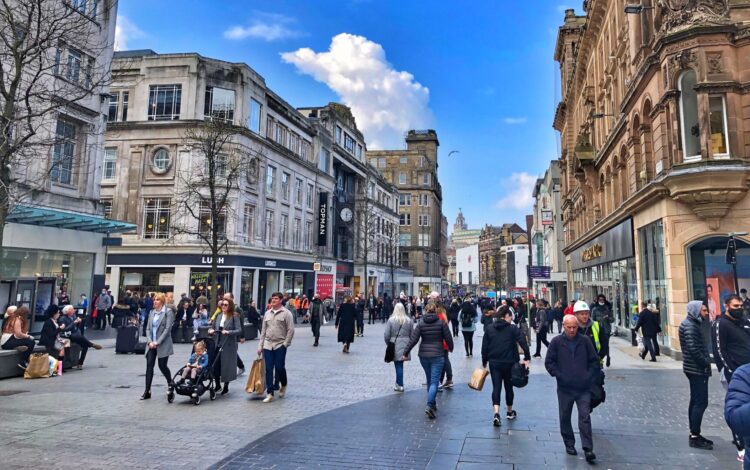Chief executive of Downtown in Business, Frank McKenna, says the ‘stunted ambitions’ of the city’s mayoral candidates could push Liverpool back into economic stagnation. Tony McDonough reports

Liverpool faces a return of economic stagnation unless its politicians shake off their “anti-development, anti-progress” attitudes, business leader Frank McKenna says.
Mr McKenna, chief executive of business lobby group Downtown in Business, claims the “stunted ambitions” of those seeking election in May could see the momentum of the last decade stall and push the city back to the “dark days” of the 1990s and noughties when it became the default of planning officials to say no to new development.
He fears the Max Caller report into the failings within Liverpool City Council is being used as an excuse to “excuse to bring down the shutters”, adding: “ We don’t need politicians frightened of their own shadows, we need true leaders willing to embrace those who want to invest in our city and take it forward.”
With the Joe Anderson era now coming to an end, a new elected mayor will take office in the city following the election on May 6. A third of the seats on the city council are also up for grabs.
Favourite will be the Labour candidate, Joanne Anderson. The other candidates are Richard Kemp (Lib Dem), Stephen Yip (Independent), Katie Burgess (Conservative), Tom Crone (Green), Steve Radford (Liberal) and Roger Bannister (TUSC).
According to Mr McKenna, the candidates are causing concern among the business community that the Caller report is making them more risk-averse to new investment and new property development.
He said: “Just as Manchester is welcoming 60-storey towers as evidence of its confidence and progress, we have politicians campaigning against new development. There’s no greater sign of a city’s stunted ambition than this.”
In the 1980s Liverpool was hammered by both Thatcherism and Militant. The latter took control of the council in the early mid-80s and adopted a policy of confrontation with the Government. It was also accused of ‘jobs-for-the-boys’ cronyism and ultimately left the city saddled with a mountain of debt.
Arguably, cost of the damage to Liverpool’s reputation was even more costly with investors giving Merseyside a wide berth for many years. Slowly, with the help of the Merseyside Development Corporation and, later, European Objective One funding, the city started to get back on its feet.

In 2008 it celebrated becoming European Capital of Culture and it was also the year the £1bn Liverpool ONE retail and the ACC Liverpool events and conference venue opened their doors. They have proven to be key drivers of Liverpool City region’s visitor economy which, prior to the pandemic, had grown to be worth more than £5bn a year.
However, Mr McKenna says those who believe it is “job done” for Liverpool’s economy are wrong. He explained: “Liverpool is not ‘fixed,’ and by standing still we merely increase the gap between our city and those with the vision to stride forward. Right now, we find ourselves in the perverse position of our politicians competing with each other to deter investment.
“Where is their sales plan that targets potential investors? Who is responsible for its delivery? Who will be supporting the council chief executive Tony Reeves and his team in building on the fantastic work that is taking place in the Knowledge Quarter?
“These are the issues that should be exercising our politicians. I invite them to work with our membership, each of which knows a thing or two about selling and succeeding in fiercely competitive markets.”
He concluded: “We have achieved a good deal in Liverpool during the past decade or so. However, we are still very much at the start of our journey. All the key indices about land values, salaries, and unemployment rates are evidence that this is fact.
“I would remind the mayoral candidates that to distribute wealth, you must first create it. The private sector will do that – but it needs the local authority and its structures to be working to enable that, not stymie it.”

